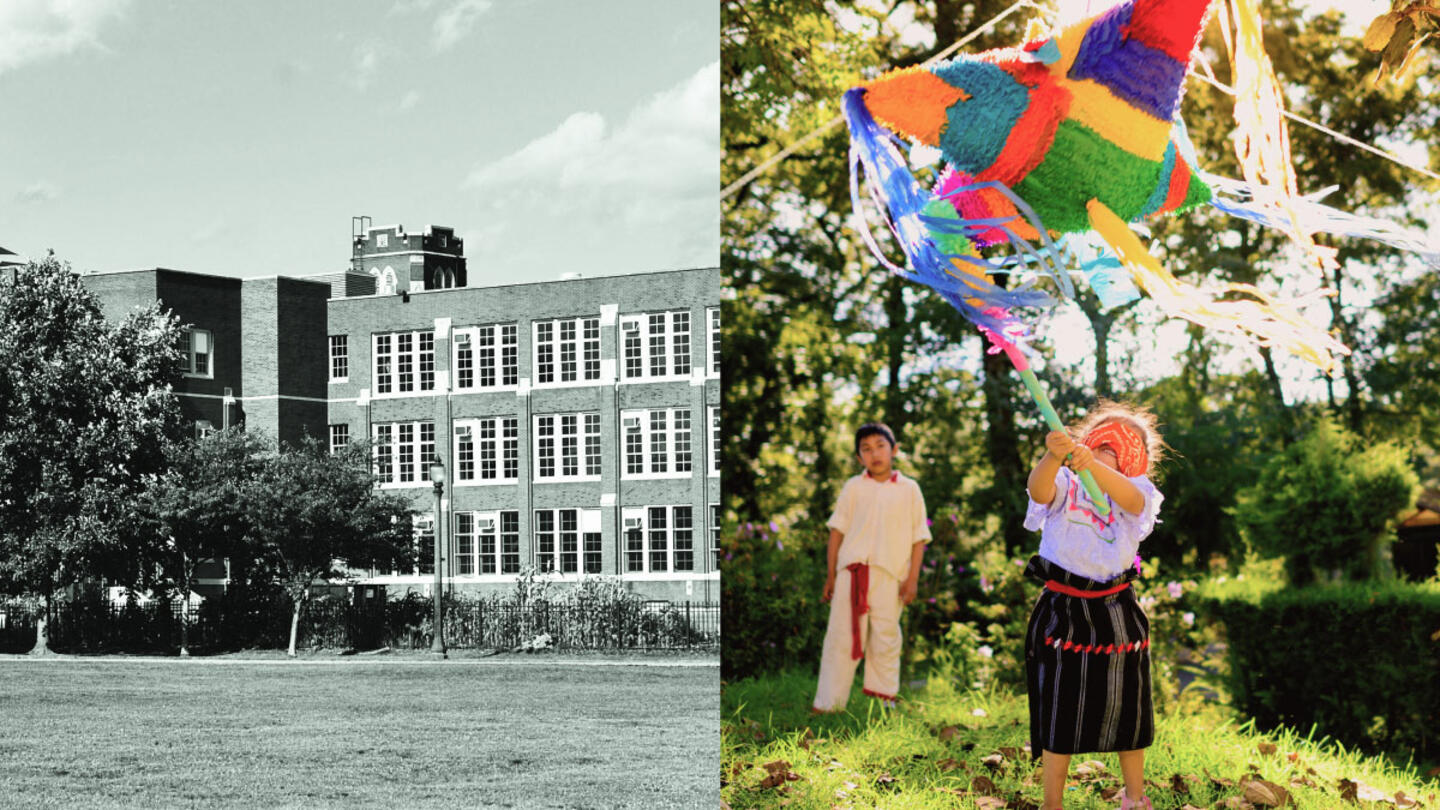When Gisela Quiñones decided to homeschool her children, it wasn’t just a change in education — it was an act of empowerment.
Her decision was sparked one day when her first grader came home from school devastated after being publicly shamed by her teacher. The teacher had placed a zero next to her name on the chalkboard, pointing out her struggles in math to the class. The experience left Quiñones’ daughter in tears.
Quiñones knew something had to change. She decided to educate her children at home so she could focus on their individual talents and gifts, providing them with the respect and personalized attention she knew they deserved.
That was nearly eight years ago. Since then, Quiñones has embarked on countless adventures with her children. They’ve traveled to historical sites, cooked traditional dishes, and volunteered in their community, all while deepening their understanding of their cultural roots.
Quiñones has become a passionate advocate for personalized education. She is the founder and CEO of Latinos Homeschooling, a nationwide nonprofit organization supporting Latino homeschooling families.
A daughter of Mexican immigrants, Quiñones encourages Latino families — including her own — to celebrate their heritage and their ancestors’ contributions to this country.
In her words: “It’s who we are.”
In this article, three homeschooling organizations highlight the importance of an individualized educational path for every child, particularly in a country as diverse as the United States. With cultural roots in Mexico, Colombia, Uruguay, and the Dominican Republic, these educators share their experiences, challenges, and successes as they’ve taught their own children and supported their homeschooling communities.
Students think they’re folding a tie, but it’s really calculus
When Rosa Aristy’s family moved from Pennsylvania to Texas, her children quickly noticed a difference in their schools.
“Within the first week or two, my kids came home and said, ‘Mom, we’re already prepping for tests,’” she recalled. It soon became apparent to Aristy that her children were just going through the motions, no longer excited to learn or even go to school.
This wasn’t how she wanted her children to experience education. Her father had instilled in her a love for learning, a gift she was determined to pass on.
Aristy, a data scientist and founder of Bridges to Science, a nonprofit offering STEM experiences for homeschooling families in Houston, began by learning alongside her children. When their interests outpaced her expertise, she turned to the local homeschooling community for support.
Over 14 years, Aristy has been amazed by the depth of her children’s education outside traditional schools. Each has focused on what brings them the most satisfaction. “I wish I had learned the way they have,” she said. “We’ve become experts in their interests together.”
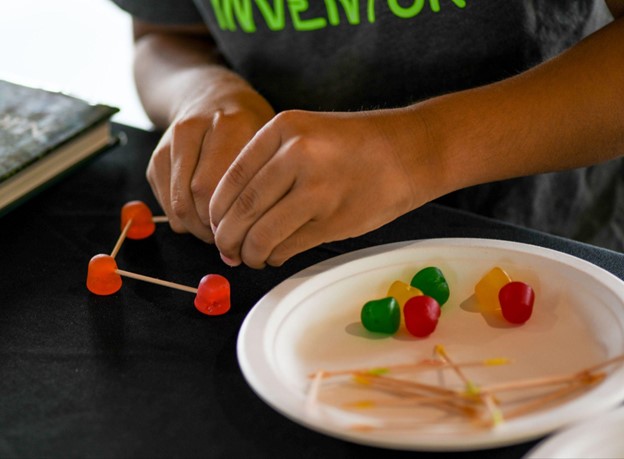
With her daughter, Aristy explored hands-on projects like making slime. With her second-oldest, a voracious reader, Aristy delved into specific historical periods and then pivoted with him when he decided to focus on STEM subjects. Aristy’s younger sons pursued very different interests: one in math and coding, which prompted her to refresh her own skills, and the other, a nature lover, exploring plants and wildlife.
When students in her kids’ co-op expressed an interest in coding, robotics, and programming, Aristy and other parents realized they would need to step up. “The other moms and I, we looked at each other, and we were like, ‘Whoops, who is gonna teach these?’”
Despite her limited experience in programming languages for children, Aristy embraced the challenge. “They were bursting with curiosity,” she said. “I thought, ‘Let’s learn together. We’ll figure this out.’”
Sign up for Stand Together's K-12 newsletter and get stories, ideas, and advice from changemakers who are transforming education across the country.
This led to the creation of Bridges to Science. The organization fills a gap in STEM education for local homeschooling families, which, according to Aristy, have traditionally lacked access to STEM fields.
Its flagship program, the Houston Science Festival, brings together STEM educational leaders and organizations in the community. These experts offer hands-on activities and demonstrations, creating an interactive experience for students and their families.
“It’s very playful,” Aristy said, adding that the festival is expecting 450 attendees this year. “A student might be doing what they think is simple origami. Before they know it, they’re talking about the Pythagorean theorem. Some college professors have taught them calculus by folding a tie.”
Two years ago, Aristy overheard her daughter telling a friend what she liked most about homeschooling: “My mom taught me how to love learning.”
“Isn’t that what we all want?” said Aristy. “In a world where things are changing so rapidly, with technology reshaping everything. It’s not about what you know, but your ability to learn that will carry you in the future.”
Cultural heritage can be a tricky subject
Quiñones grew up in a working immigrant community in East Chicago, Indiana, where her bilingual public school education included little about her heritage.
She recalled a second-grade worksheet featuring Gloria Estefan, who emigrated from Cuba with her family as a child.
“I was excited because she (Estefan) looked like me,” Quiñones said. “It helps you to be able to say, ‘This is who I am, and I’m confident that I can do anything I want if I put my mind to it and put in the work.”
In college, Quiñones took her first Latino studies course, but it wasn’t what she expected. The class didn’t celebrate her heritage so much as it detailed the historically unfair treatment of Hispanic Americans. “I don’t want that for my children,” she said. “I want them to be confident in who they are.”
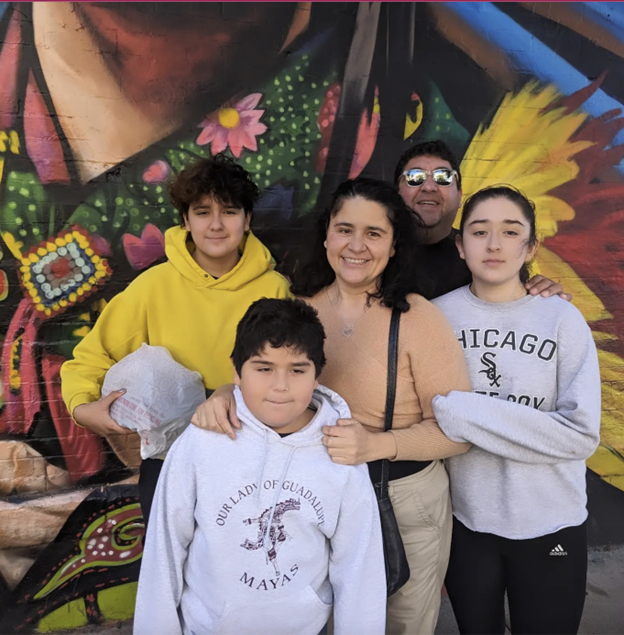
When she began homeschooling, Quiñones started a Facebook group for Latino families in the Chicago area as a way to connect in person, but as the group grew, she found that families across the country were seeking similar resources to teach their children about their U.S. cultural roots.
“We have a history here [in the United States],” she said. “It’s important for our students to know that. There are a lot of Latinos who made a great impact in this country. Even just in Chicago. A lot of the work in construction and painting of the skyscrapers was done at the hands of Mexican immigrants.”
Latinos Homeschooling empowers Latino families by offering culturally relevant resources, support, and educational programs that address the specific needs of Latino parents and children, providing opportunities not typically available in traditional schools.
For example, Quiñones explained that traditional American schools fail to address the unique needs of Latino students, many of whom fear judgment from peers if their Spanish isn’t strong or they have limited experience with cultures and customs.
Seeing the need in her own children, Quiñones introduced Latino Studies to her organization’s online offerings. The program features Latino heritage courses, Spanish language classes taught by native speakers, and a book club focusing on Latino literature that builds community among teen homeschoolers.
She related that in a recent Spanish class, a 16-year-old from Seattle, who signed on at 7 a.m., shared why he was participating: “I want to talk to my grandma.”
‘It’s like a dam broke.’
When Ana Maria Bagnuoli transferred from a private school in Colombia to a public high school in Miami, Florida, she felt like she’d gone to prison.
“It was really like jail,” she said. “There were no windows in my classroom. The doors had security glass, and we had security people coming to the classrooms searching our bags.” The lack of autonomy was the most frustrating part. “The teachers tell you, ‘Come sit here.’ The bell rings, ‘Rotate [classrooms]. Take your notes. Go to the next class.’ I’m being blunt here, but that’s what it was.”
On top of it all, her parents trusted the system. “They delegated my education to those who supposedly knew me better,” she said, noting how much she would have appreciated their guidance.
Bagnuoli pushed through, earning three college degrees, but the ordeal was one she didn’t want to repeat with her own kids.
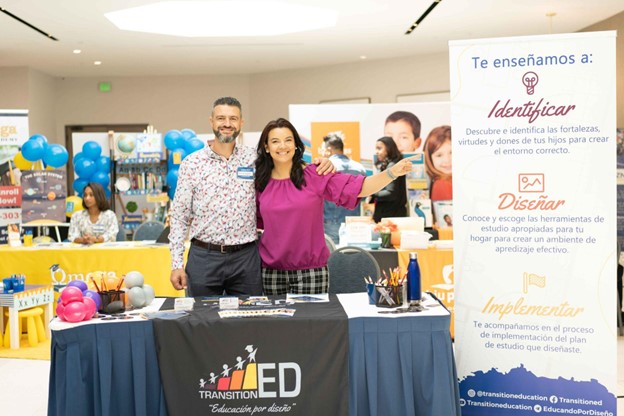
When she discovered homeschooling 13 years ago, it aligned with her desire to be more involved in her children’s education. Back then, homeschooling was not the first option, even in the U.S., and resources in Spanish were scarce. She and her husband Ricardo, who is from Uruguay, were fortunate in that they were bilingual, but not all families had that advantage.
In 2017, the pair founded TransitionED to help Spanish-speaking parents take on the role of primary educators. They support Hispanic families from many Latin American countries, including Colombia, Argentina, the Dominican Republic, and Venezuela.
Bagnuoli has seen that, like her own, many Hispanic parents traditionally delegate and trust education to schools. It’s often a part of the culture to believe parents aren’t qualified to teach their children. For most Hispanic families, Bagnuoli explained, home education — or even parental involvement in education — is a new concept.
However, the pandemic’s remote learning forced many parents to reconsider traditional schooling.
“It’s like a dam broke,” she said, describing the movement as a major cultural shift. “Parents are realizing they don't need to surrender their rights and responsibilities just because they don't feel qualified.”
Bagnuoli is encouraging the shift. “Let me show you how qualified you are,” she tells parents, highlighting the importance and influence of parent-child relationships.
She has witnessed firsthand how her children have flourished through their relationships with her and her husband. The positive impact is evident in every aspect of their lives, including their academic success.
“It’s very easy to get carried away in academics, but when you spend time connecting with and knowing your child, encouraging them, and even correcting them, it will reflect on the academics.”
Through their organization, the Bagnuolis facilitate training, offer tools, and connect parents to the support they need to be the best educators for their kids. “Parents need support more than even the children,” said Bagnuoli. “When it comes to education, they don't know where to start, they don't know their role. That's why TransitionED exists.”
The movement continues to grow. For three years, TransitionED has hosted the only international Spanish-language homeschooling conference, Educa Por Diseño, or “Education by Design.” Families from across the U.S. and beyond gather to work out what learning looks like in their homes. At the most recent conference, Hispanic leaders and resource providers held a three-hour networking and vision-setting session entirely in Spanish.
Many state homeschooling conferences now include Spanish-language tracks. Homeschooling organizations in countries like Venezuela and the Dominican Republic have also requested Educa Por Diseño conferences in their regions.
Bagnuoli’s vision is to “restore the concept of parenthood,” helping parents become more involved in their children’s education and significantly impact future generations.
“I would like to see parents understanding that they could be more involved in the raising of their children and taking action,” she said. “We can make a shift, a huge turn in education that will impact the future course of generations.”
Latinos Homeschooling, Bridges to Science, and TransitionED are supported by VELA, which as part of the Stand Together community supports everyday entrepreneurs who are boldly reimagining education.
Learn more about Stand Together’s education efforts and explore ways you can partner with us.
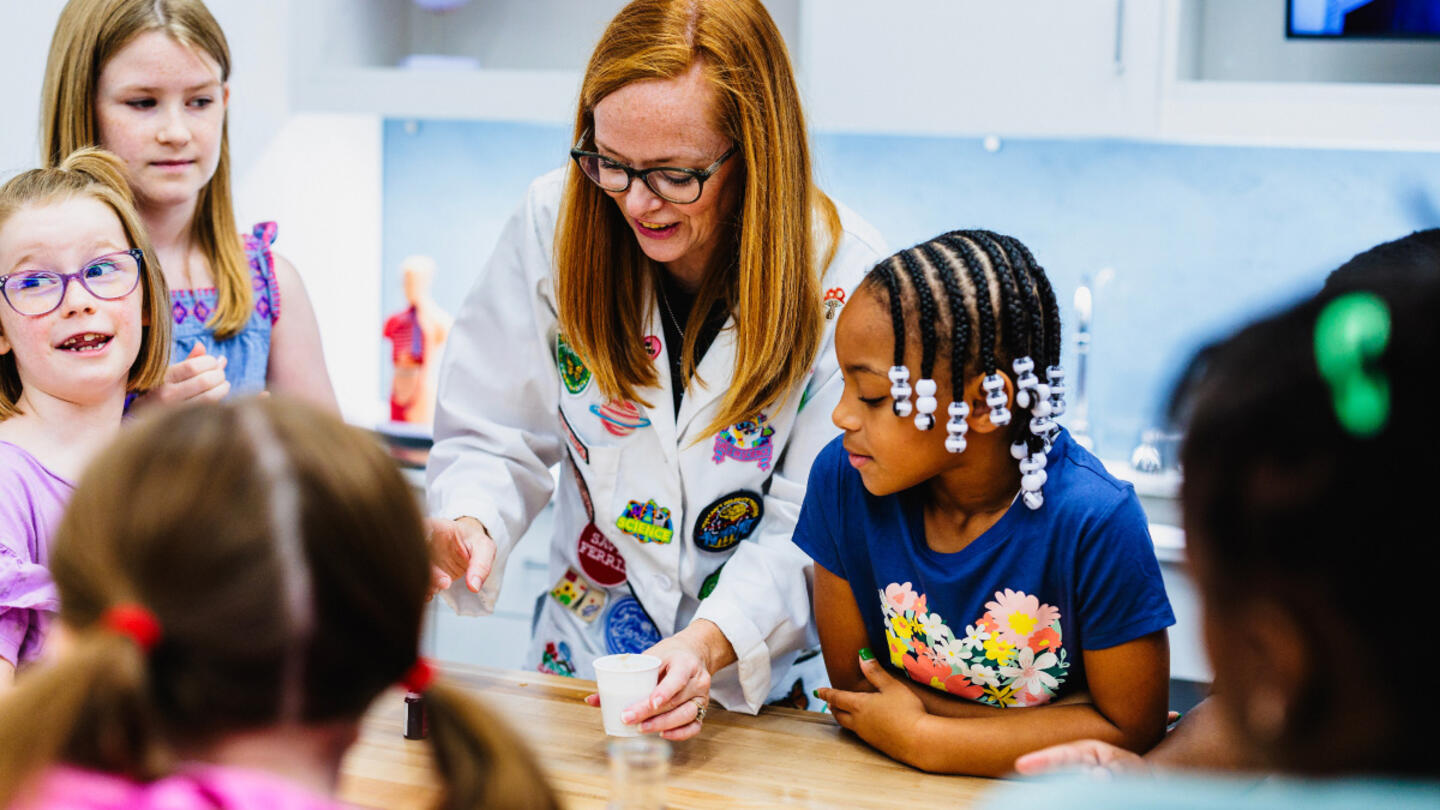
This colearning space has the potential to bridge the divide between public and private education.
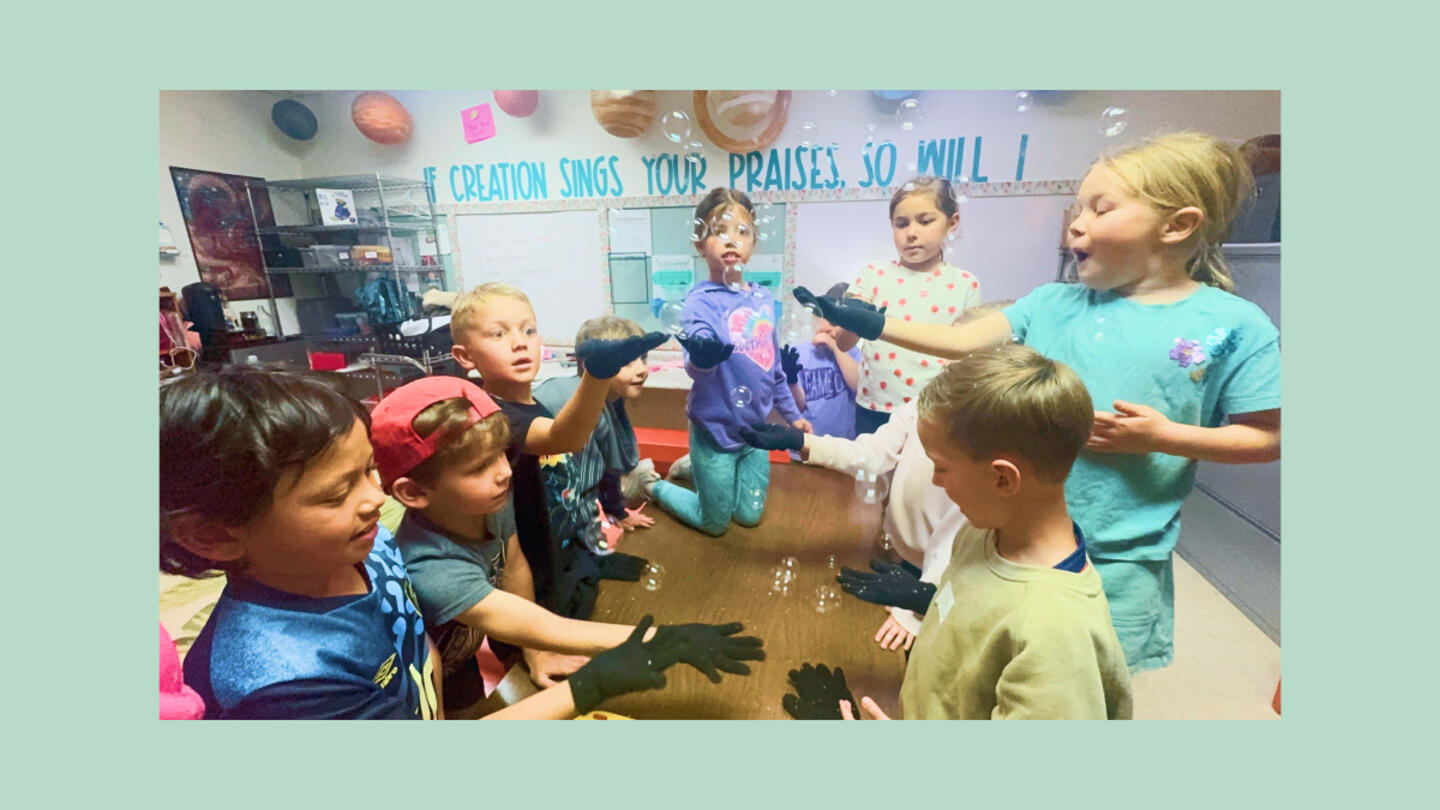
New Johns Hopkins data shows homeschooling’s recent surge has transformed the education landscape.
Step 1: Find the best learning environment for your child. Step 2? Figure out how to pay for it.
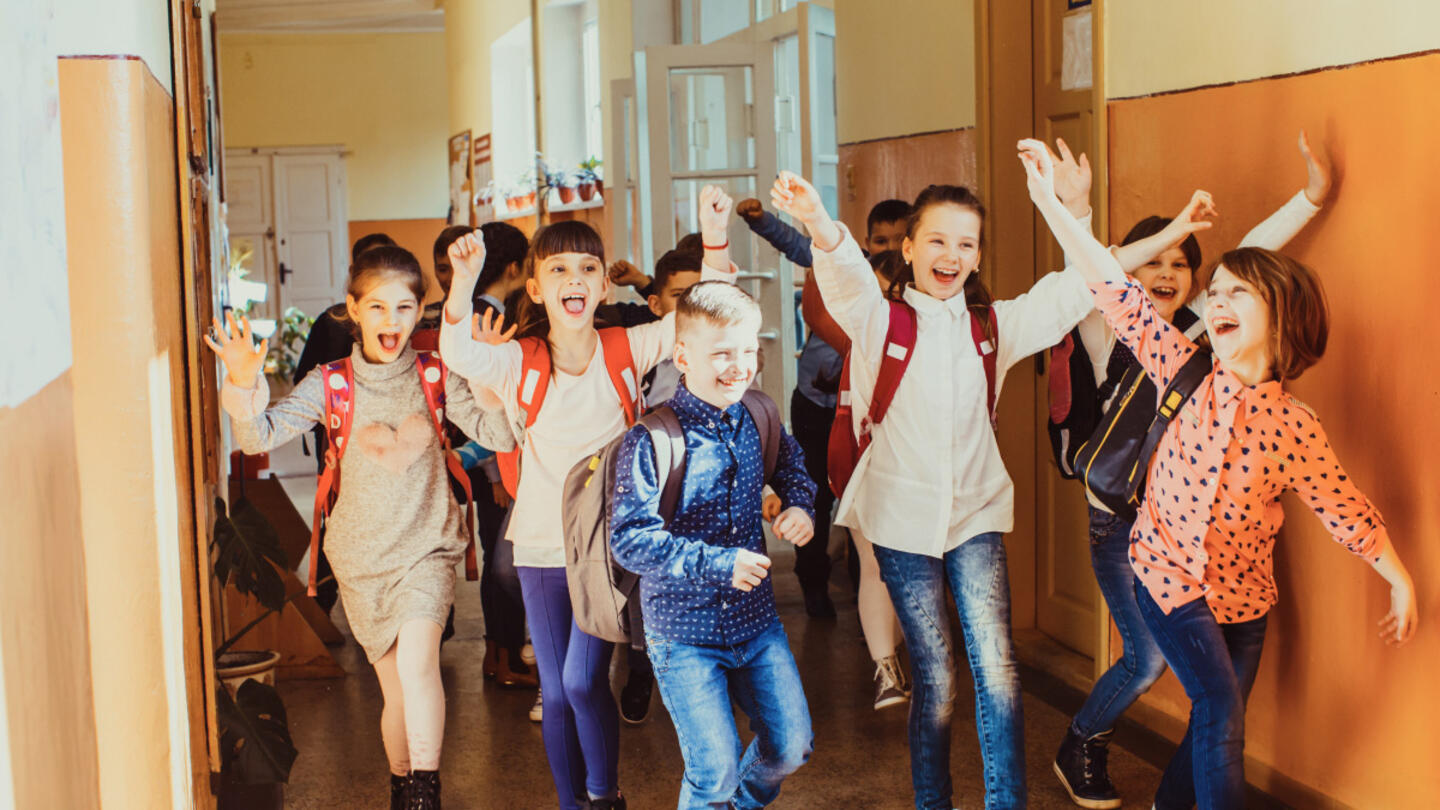
Here’s what happens when AI replaces teachers.
